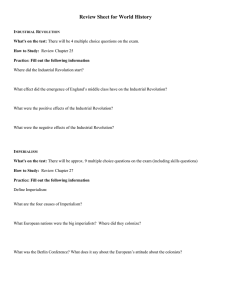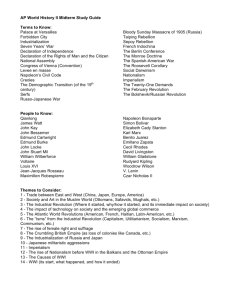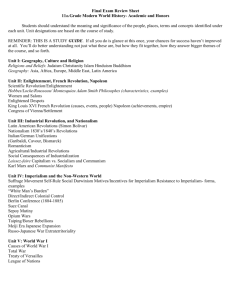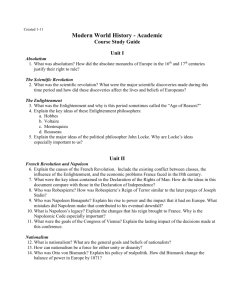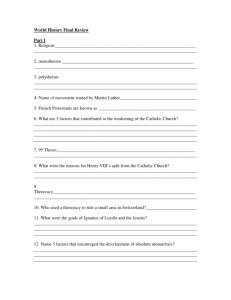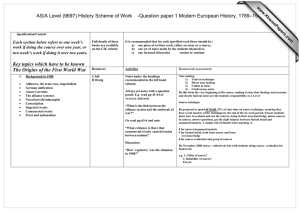World History Final Exam Study Guide
advertisement
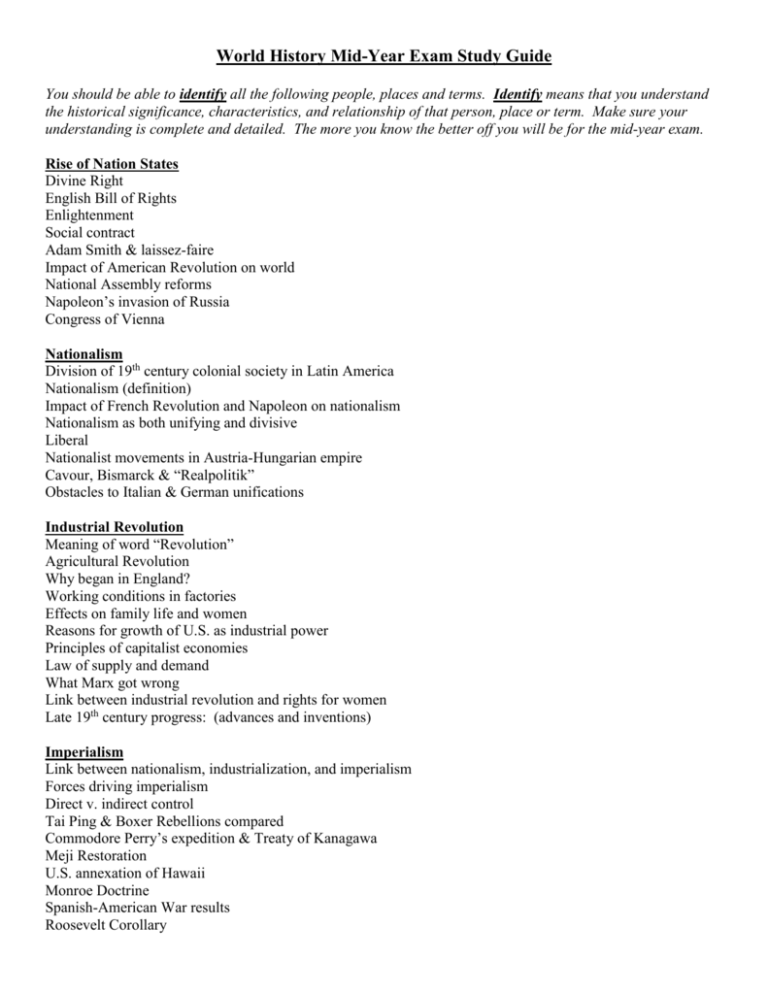
World History Mid-Year Exam Study Guide You should be able to identify all the following people, places and terms. Identify means that you understand the historical significance, characteristics, and relationship of that person, place or term. Make sure your understanding is complete and detailed. The more you know the better off you will be for the mid-year exam. Rise of Nation States Divine Right English Bill of Rights Enlightenment Social contract Adam Smith & laissez-faire Impact of American Revolution on world National Assembly reforms Napoleon’s invasion of Russia Congress of Vienna Nationalism Division of 19th century colonial society in Latin America Nationalism (definition) Impact of French Revolution and Napoleon on nationalism Nationalism as both unifying and divisive Liberal Nationalist movements in Austria-Hungarian empire Cavour, Bismarck & “Realpolitik” Obstacles to Italian & German unifications Industrial Revolution Meaning of word “Revolution” Agricultural Revolution Why began in England? Working conditions in factories Effects on family life and women Reasons for growth of U.S. as industrial power Principles of capitalist economies Law of supply and demand What Marx got wrong Link between industrial revolution and rights for women Late 19th century progress: (advances and inventions) Imperialism Link between nationalism, industrialization, and imperialism Forces driving imperialism Direct v. indirect control Tai Ping & Boxer Rebellions compared Commodore Perry’s expedition & Treaty of Kanagawa Meji Restoration U.S. annexation of Hawaii Monroe Doctrine Spanish-American War results Roosevelt Corollary Possible Open Response Topics You will be asked to respond to writing prompts based on the topics below and will be graded based on the common four-point open response rubric . Sources will be provided for each question. You will need to be prepared to provide relevant historical examples and evidence in addition to the evidence from the sources to complete your responses. Absolutism to Revolution 1. Democratic ideals of the Enlightenment thinkers 2. Abuses of the Old Regime 3. Napoleon’s failures as a cause of the rise of nationalism Nationalism 4. The process of unification in Italy and Germany 5. Nationalism as a unifying and a divisive force within a country 6. How Enlightenment ideas influenced Latin American revolutions Industrial Revolution 7. Impact of industrial development on Western Europe or the United States 8. How and why the Industrial Revolution began in England in the 1700s 9. Differences between capitalism and communism Imperialism 10. Motives of Western nations for their imperialist actions in Africa, Asia and Latin America 11. Forms of imperial control 12. Effects of imperialism on the imperialist nations and their colonies

